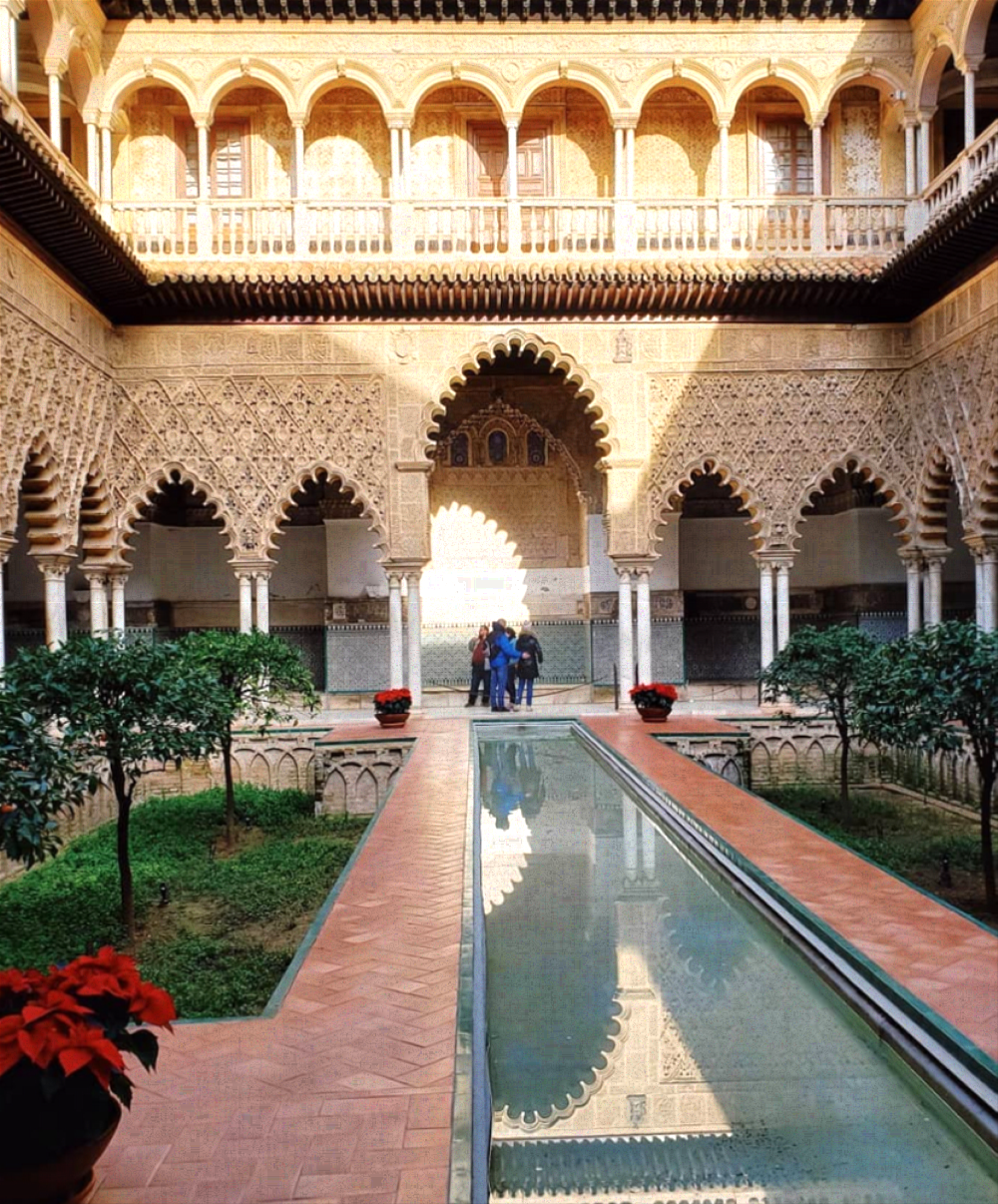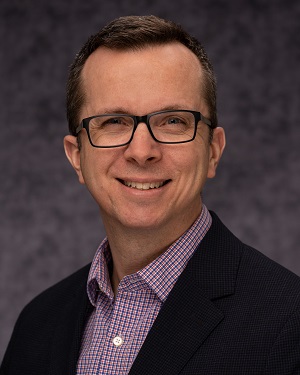 COURSE DESCRIPTION
COURSE DESCRIPTION
In this course, students will explore the many aspects of the history and culture of Spain affected by its contact and relationship with Christian, Islamic, and Judaic civilizations throughout the Medieval and Early Modern period in the Iberian Peninsula and the Maghreb (for example, art and architecture, language and literature, religion and law, music and dance, food and customs). Students will thus have many opportunities to gain insight and better understand the historical and ideological contexts relevant to contact and conflict between cultures and civilizations in the modern world.
APPROVED CREDIT
SPAN Elective
ENST Elective
SOPHIA: Global Perspectives
COURSE OBJECTIVES
- Develop a general understanding of the history of the spread of Arabo-Islamic civilization through North Africa and into Spain.
- Develop understanding regarding the ways in which the spread of this civilization affected and mingled with those with which it came into contact (e.g. Christian, Jewish, Berber).
- Analyze the cultural impact of Arabo-Islamic presence in Morocco, and in Spain from 711-1614 and beyond.
- Develop an understanding of the Jewish experience in Morocco and Spain under Muslim and Christian rule.
- Experience Moroccan and Spanish culture (e.g. by attending performances, visiting museums, historic sites, and restaurants) and develop an awareness of ways in which present-day worldviews and cultural practices are tied to past experiences of and interactions between Christian, Jewish, and Muslim communities in the regions explored.
- Observe and make comparisons and contrasts between cultural artifacts and practices (e.g. art, music, food, architecture) in Morocco and Spain.
- Become familiar with aspects of the lifeways of the Moroccan and Spanish people and learn something of the languages they speak.
- Develop familiarity with the relationship between Judaism, Christianity, and Islam, their similarities and differences, and the ways in which such relationships, similarities, and differences have shaped interactions between the three faith communities in Morocco and Spain over time.
PRIORITY DEADLINE
April 4:
Complete applications will be reviewed and students will be notified of acceptance status by April 13. Some courses may fill by the priority deadline. Courses with open spaces will remain open until October 1 or until filled, whichever comes first.
COMPREHENSIVE FEE
$5,600-$5,900: Includes international airfare, all accommodation, entrance fees, guides, in-country transportation, daily breakfast, several group meals and the IPO health & safety fee (includes EIIA insurance coverage).
EVALUATION
- Journal Entries (40%) — Each day, students are required to complete an entry in a personal journal. Journals will be collected by the instructors regularly throughout the time abroad, and they will be handed in for a final grade on the flight home from Spain. In each entry, students will include the date and a simple sketch of something seen or experienced that day, document through narration the events and observations that made up the day, explain what they learned that day, and reflect on the day's learning and experiences.
- Planned discussions and unplanned discussions (30%) — Periodically throughout the course, students will have planned discussions. Planned discussions may include lectures, but will also rely heavily on individuals' ability to contribute to discussions based on their reading and observations. Students will be evaluated based on preparedness, presence, and contributions to the discussion. Students should be equally prepared to engage with peers, instructors, and guides at any and every moment while together with them. Unscheduled or unplanned discussions may happen at any moment—with another student or three, one-on-one with the instructor, or in a small group with one or both instructors. Instructors will be considering students' preparedness, presence, and contributions in these moments as well.
- Quizzes and other assignments (10%) — Periodically (for example, as a follow-up to a reading, or if students are exhibiting poor preparedness, presence, and contributions during planned and unplanned discussions), course instructors will determine the need for a short quiz or writing activity based on course readings and/or experiences. Such quizzes or assignments will prompt students to demonstrate familiarity and engagement with the specific aspects of the substance of the course by reflecting on it.
- Flânerie “Your Scavenging” (20%) — The French word flânerie is a term used to speak of “idle or aimless behavior.” In many of the cities and places visited on the trip, students will have opportunities to wander and explore on their own or with a few companions, and will be expected to take advantage of these moments to reflect on what they are experiencing and learning. Students will document these experiences and reflections by maintaining an ePortfolio on Canvas, where they will keep and organize some of the photos they take, sketches they make, and reflections they write based specifically on their flânerie.
COURSE LEADERS

Dr. Michael Rueter
Associate Professor, Spanish
Dept. of Languages, Literatures and Cultures
605.274.5472
michael.rueter@augie.edu
Dr. Rueter received his Ph.D. from the University of Wisconsin-Madison, where he taught all levels of Spanish language and composition as well as introductory literature courses. He specializes in medieval Spanish literature and the writings of the Moriscos, the crypto-Muslim population living in Spain during the 16th and early 17th century. Some of his research interests involve relations and exchange amongst the Jewish, Christian and Muslim communities of medieval Iberia, as well as the themes of convivencia and reconquista. Dr. Rueter also spent time living in Spain, where he studied abroad and taught English at the University of Murcia.

Dr. David O’Hara
Professor of Philosophy, Classics, and Environmental Studies
Dept. Chair of Religion, Philosophy, and Classics
Director of Sustainability
605.274.4890
david.ohara@augie.edu
Dr. David O’Hara teaches a variety of courses, including ancient philosophy, American philosophy, environmental ethics and law, classical Chinese philosophy, and philosophy of religion. He teaches and conducts research in the forests of Guatemala, the reefs of Belize, and the tundra of Alaska, and he teaches environmental humanities courses in Greece, Spain, and Morocco. His most recent book is Downstream, (Cascade Press, 2014) about brook trout and the ecology of the Appalachians. He is also the author of Narnia and the Fields of Arbol: The Environmental Vision of C.S. Lewis (U. P. Kentucky, 2008). He is currently preparing an edited volume of the Religious Writings of American philosopher Charles S. Peirce. Dr. O'Hara is a graduate of Middlebury College (B.A., Spanish), St John's College (M.A., Liberal Arts), and The Pennsylvania State University (M.A., Ph.D., Philosophy). Dr. O'Hara was the recipient of the 2018-2019 Carole Bland Cultivating Faculty Excellence Endowment and the 2008-2009 Jane and Charles Zaloudek Faculty Research Fellowship.
